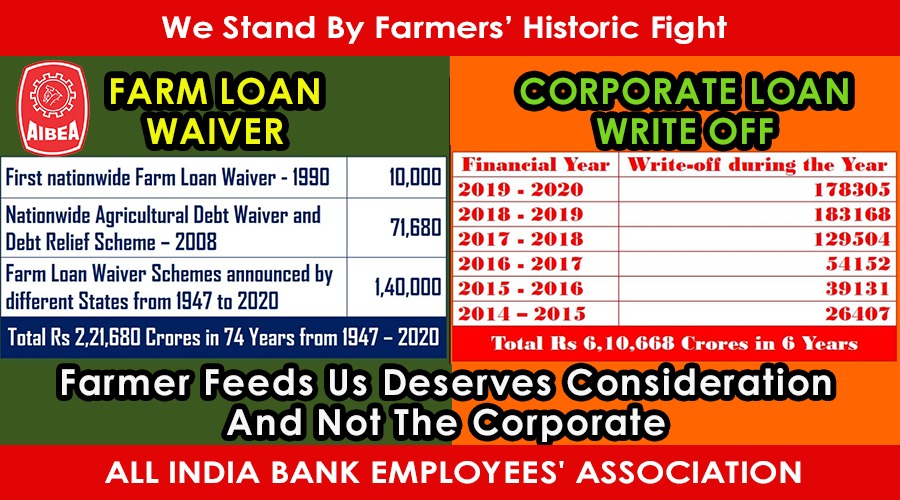Conversations
https://thewire.in/books/masterstroke-amazon-narendra-modi-berozgar-bhakt-employment Published on May 23, the book is called MASTERSTROKE: 420 secrets that helped PM in India’s employment growth!. Its author has the pseudonym ‘Berozgar Bhakt’. The Hindi berozgar means ‘unemployed’ and Bhakt is a slang term used for supporters of the rightwing government and parties in India.
Internet Has Field Day With Blank E-Book on PM Modi's Employment Growth Secrets
The book, credited to a 'Berozgar Bhakt', exited the e-commerce platform Amazon after a two-day stint in which it garnered several glowing reviews.
In terms of growing local economy on the consumer or demand side: please see: http://emeets.lnwr.in/index.php/curated-conversation-compilation/36-alternative-visions/alternative-pathways/659-proposal-for-local-e-tail-enterprise
SG responds.. Given the long haul we are in with covid and the changing safety protocols, digital tech will become widespread even in semi rural areas. If course, our local grocers, chemists and kiranas are lifelines for most of us.
But using digital tech to build local coops very important to keep local economies going.
Any tech savvy member of our group able to move on this?
There are also possibilities on the Supply side..

More importantly, the decentralised farm economy provides livelihood, not just wages, to a majority of job seekers, especially in COVID, and conflict times. And most of the new laws is aimed at producing "efficiency" a the cost of subsistence wages.. the new "management/PR csars who are the real Bhakts of Corporatism today, have managed to "sell" the idea that corporatising Agriculture will give more high paying jobs -- the aspirational Indian concept floated in 14, and the Asmita in the sate elections before that. We need effective strategies to neutralise this group. There are a lot of young as well as veteran people who do support the public or at least the "public-accountability" sector. Today most of them feel that the war is lost, and are very skeptical of any "incremental" or local scale solution. This group has been at the forefront of gathering these ideas, along with other groups like Vikalp Sangam. We do need infuse a bit of (forgive me for saying this) positivity!!!
Farmers markets, MOFCA like venture have remain "elite" exercises. why?
https://mofcaindia.wordpress.com/
http://www.caravanmagazine.in/vantage/kpmg-unnamed-ias-officer-corruption-letter-modi
“A quick investigation will reveal that government projects worth over Rs 300,000 crores are being handled by US consulting firms and that atleast 100 top bureaucrats have their children or relatives working in these consulting firms,” the director alleges."
" " These include relatives of several former and current top officers in the Ministry of Urban Development, ....... Importantly, one of these civil servants currently holds a crucial position in Modi’s flagship Smart Cities mission."
Being from a media background, I had thought I understood what makes for good communication: knowledge of the online platform, a fair understanding of what I'm trying to communicate and an audience I'm trying to communicate with, right?
Wrong. There was a lot at play that I only became aware of when I expressed my views on a social issue that impacted me personally too.
There was instant backlash and multiple narratives to nullify what I was saying; you're not old enough to understand the complexity of issues, leave this to those in-charge, as a woman you already have more access and privilege than other women, and the list is long.
That was a poignant point of realisation for me of how among everything else, being a young individual with an independent voice makes it difficult to be heard and taken seriously, along with the onus being put on us to be polished experts on topics that we're engaging with.
This was the conflict that we decided to work with when I was invited as a youth champion for by The VartaLeap Coalition's GenNationBuilding – a वार्तालाप on Youth Duties and Rights. GenNationBuilding is an intergenerational dialogue space around various thematics such Media, Politics, Sexualities, Education and so on.
post truth era mein, media kitne kaam ka hai
very important question sanjivani
From med john to Everyone: 06:02 PM
Issues raised by Film "social dilemma" that even as producers in social media, we are being polarised.. and we can see this in the mdia ethic even on main stream channels.
There is also the issue of individualisation of communication..
From Piyush Ghosh MED to Everyone: 06:03 PM
What can mainstream media institutions do to make more space for young people’s voices?
From med john to Everyone: 06:08 PM
We as young people have social media in our hands.. but we are essentially victims of the likes and troll culture
there is a structural problem with media reproduction.. the propaganda and power model.. which we are also trying to emulate.
From med john to Everyone: 06:15 PM
Almost all reporters in mainstream TV are youth.
but they toe the line of the editors.
From MED - Shah Jalpa to Everyone: 06:16 PM
media should analysis the problem very well
From Astha Agarwal_REL to Everyone: 06:27 PM
Translation: Our conversatons on media is generally limited to urban youth with access to social media. It is important to include non social media and rural youth. We can critique mainstream media, but we need it too....so we need to contribute to changing it...and not just dismissing it.

This section aims to capture the knowledge, conversations, debates around Conscious Media and its various aspects. It is a work in progress article that invites contributors to add to it.
What is Conscious Media?
There are quite some ways in which Conscious Media is defined. One of the practices in engaging critically and consciously with information and data is to be a discerning reader. This means that one needs to create their own ways of knowing that are based on a variety of sources that they trust. And hence, each one is invited to build their own understanding of Conscious Media after engaging with content around it. Here's my attempt at articulating what it means to me:
One of the core critiques of the media culture today is the hyper-individualism that has made the process of media engagement isolated. The new media is working against its own intent of what it set out to do: Connect people. Add to it the cacophony of information overload, all the digital noise that hampers the sense-making capacity of an individual. Conscious Media practices involve reclaiming one's sense-making process, building awareness about one's consciousness while engaging with the media, collectivisng the process of media consumption and creation.
To read more:
https://evolutionaryguidancemedia.com/
https://evolutionaryguidancemedia.com/research
"The everyday hero is online in the form of the Cyberhero (Klisanin, 2012)."
https://www.psychologytoday.com/sites/default/files/attachments/85256/futures-elsevier-copy.pdf
Why do we need Conscious Media?
To understand what is Media; its history, evolution, theorists, and its implications on power, culture, technology and infrastructure, refer to the following articles:
https://journals.sagepub.com/doi/full/10.1177/1350508419855702
Theories falling into the third branch question the possibility of differentiating between media and content and introduce a historical lens into the research of contemporary media. From this perspective, the development of media is always a play-off between social necessity and suppression, which relates already existing and novel technological and cultural concepts. Historical patterns of change and development in communication present ‘a field (the social sphere) in which two elements (science and technology) intersect’ (Winston, 2000: 3). This branch thus acknowledges that the technological development of media is always encapsulated in a discourse that defines them as ‘new media’ (Gitelman, 2006; Gitelman and Pingree, 2003; Chun, 2006) but that at the same time, such ‘new media’ are structured by already existing and well-established technologies, hierarchies, and aesthetic principles. Subsequently, research looks at the evolution and development of technological aspects, while taking into account the emergence of aesthetic concepts. This enables the analysis of the ‘rapid development of new digital media’ (Bolter and Grusin, 2000: 5), while reflecting on the discourse that defines shifting media configurations.
https://mediaculturesociety.org/2013/01/29/does-technology-impact-culture/
As seen in TED talks, Turkle shares her thoughts on technology’s impact. She says, “As we expect more from technology; we start to expect less from each other”. She suggests we often hide by sending messages electronically rather than discussing difficult issues in person. This is because of the belief that online is less personal and the effort to connect on a human level and is reduced by sending messages online rather than in person. Why? If by talking about the issues or concerns in person, discussions are open up where feelings, thoughts, ideas are exposed to be shared and probed. Turkle suggests we can hide from each other even though we are more electronically connected. She points out we’re not building relationships with each other, but building relationship with technology as if it’s a real thing. Turkle explains that technology doesn’t empathize, and doesn’t experience death or disappointments. Instead we select to use technology when we feel vulnerable and technology provides us with an illusion of comfort and of being in control.
https://www.pbs.org/wgbh/frontline/film/digitalnation/
Over a single generation, the Web and digital media have remade nearly every aspect of modern culture, transforming the way we work, learn, and connect in ways that we’re only beginning to understand. FRONTLINE producer Rachel Dretzin (Growing up Online) teams up with one of the leading thinkers of the digital age, Douglas Rushkoff (The Persuaders, Merchants of Cool), to continue to explore life on the virtual frontier. The film is the product of a unique collaboration with visitors to the Digital Nation website, who for the past year have been able to react to the work in progress and post their own stories online. [Explore more stories on the original Digital Nation website.]
Conversations, Dialogues and Approaches
The Social Dilemma is a 2020 American docudrama film directed by Jeff Orlowski and written by Orlowski, Davis Coombe, and Vickie Curtis. Tech experts sound the alarm on the dangerous human impact of social networking.
The growing list of founders expressed deep concerns about Google’s “monopolistic” hold on India, home to one of the world’s largest startup ecosystems, and discussed what they alleged was unfair and inconsistent enforcement of Play Store’s guidelines in the country.
https://timesofindia.indiatimes.com/city/agra/hathras-victims-kin-no-faith-in-cbi-agency-trying-to-put-blame-on-us/articleshow/79068022.cms
The legal and judicial system has been “legally” turned on its head and the suffering victims in fact have been systematically arrested, imprisoned under most draconian legal provisions, and branded as guilty of violence which in fact has been perpetuated on them. https://puclmaharashtra.wordpress.com/2020/10/16/pucl-maharashtra-statement-on-the-hathras-incident/
Hathras Victim's Mother Speaks to Barkha Dutt | "They have threatened to kill us" "I only want justice for my daughter. Will India Stand by me,"
